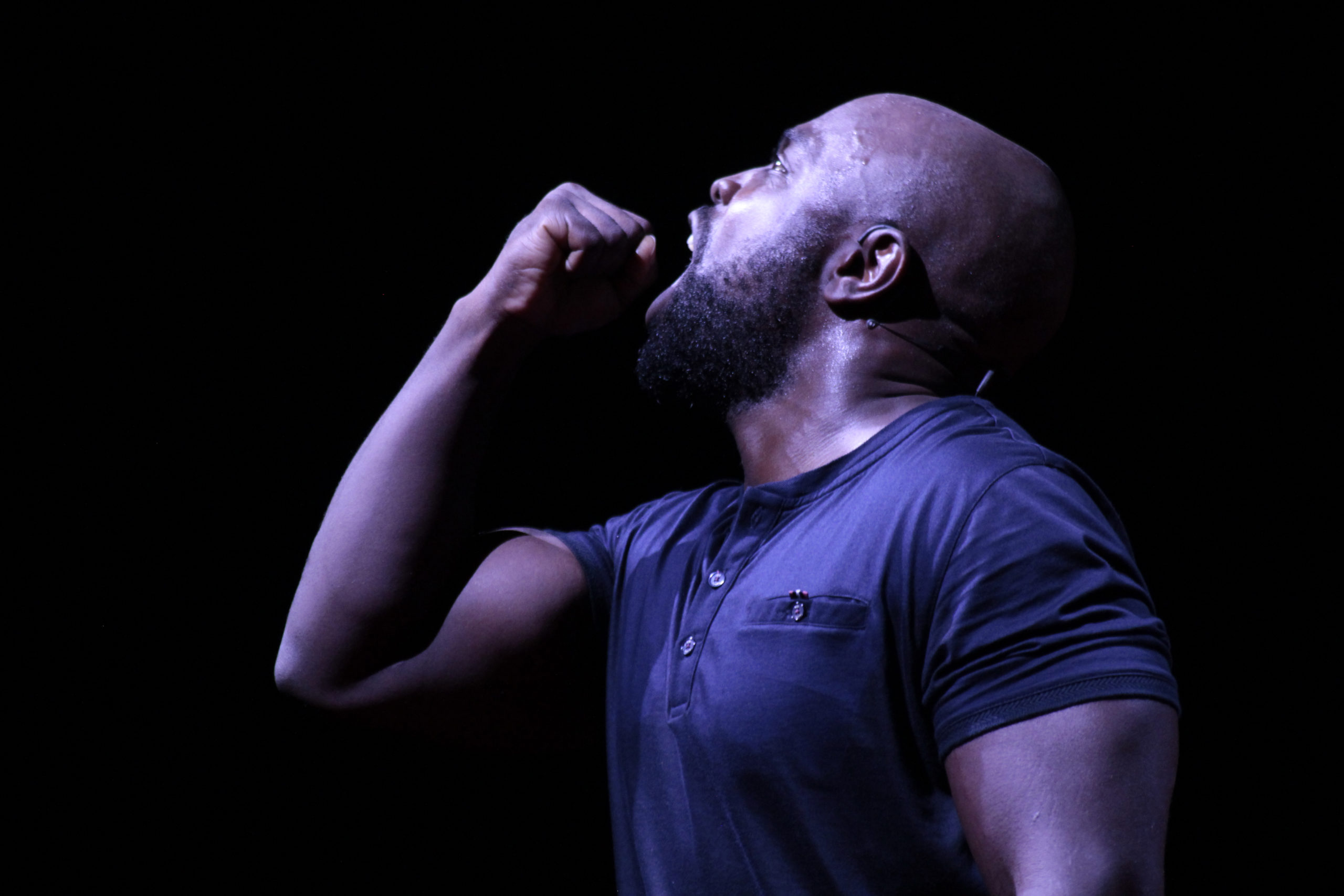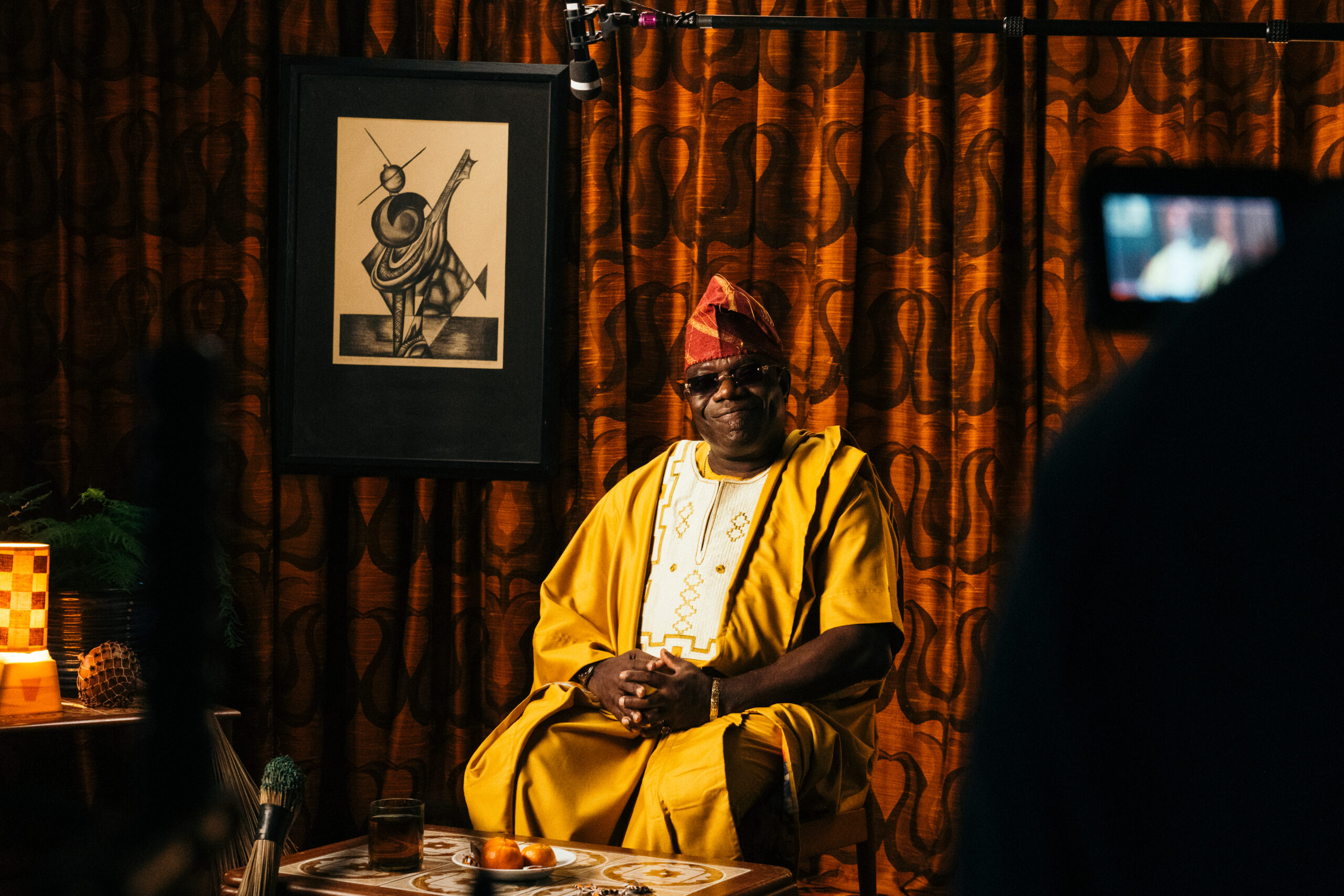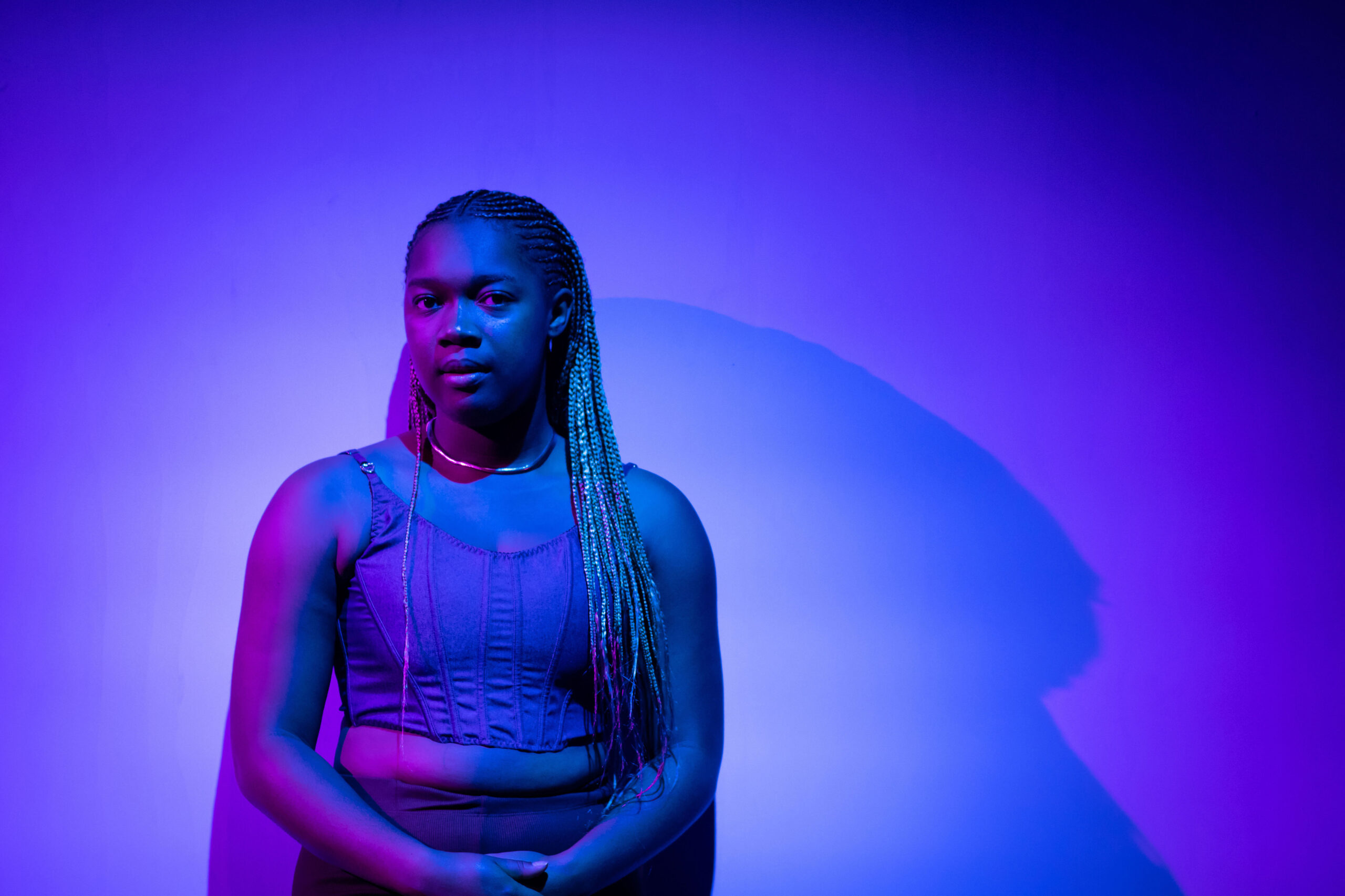
Photography by Helen Maybanks
If anyone understands the pressure of overnight success, it is Jasmine Lee-Jones. She was just 20 when her first play, seven methods of killing kylie jenner, was staged at the Royal Court Theatre in 2019. Its commercial triumph cemented her position as one of the most exciting up and coming young voices in British theatre. “Though I’m grateful for it, the attention has been very difficult at times,” she admits over Zoom.
Now, Jasmine’s words are back on stage – but this time with her performing them. She wrote the one-woman show, curious, that is playing at the Soho Theatre this month as a final year project while studying at drama school, but she always thought there was more she could do with it. “I really felt like it had another life. There was something inside me that knew I had to do this,” she explains.
Despite being only 23, Jasmine seems wise beyond her years. She ponders on her words before she speaks out loud, and there are long moments of silence in our conversation. Her writing, too, is considered, and it is hard not to note her originality and promise. “I’m 23, which is old but also so young,” she says, “I’ve just got to keep remembering not to try and please everyone.”
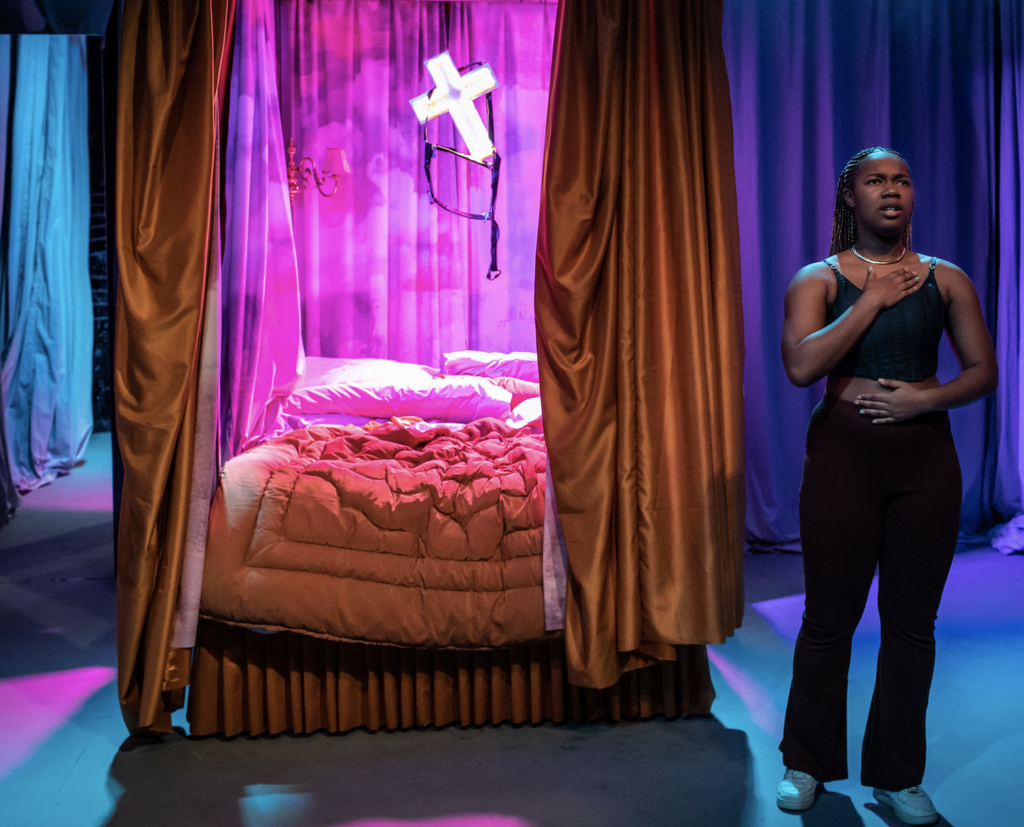
She defines curious as “creative non-fiction”. It tells the story of Jaz, a queer drama student who is struggling to find her place on a degree dominated by posh white students and old male playwrights. “Jaz is a fish out of water wherever she goes, even in the places she’s supposed to fit in – but particularly at drama school,” Jasmine says.
Though the narrative is fictionalised, it is clear a lot of the 23-year-olds own experiences have influenced her writing. After feeling frustrated while studying the Restoration plays, Jaz decides to go on a journey to uncover the history of Black women actors working at that time in Britain. “This whole Restoration project isn’t really my ting,” she tells the audience – and this irritation was something IRL Jasmine felt during her time as one of two Black students at drama school.
“I had to be resilient. I couldn’t choose the curriculum, and it was very isolating”, she explains. “Going to drama school when I was 18 coincided with me coming into consciousness with my own identity as a Black, queer woman. Even the things in the play that haven’t actually happened in my life feel very alive to me.”
Unlike her last play, which she chose not to perform in, the multi-hyphenate embodies every character in curious. “Performing it makes me feel different every day. Sometimes it is completely terrifying,” Jasmine admits, though she is quick to add, “With curious, I’m chronicling something I need to chronicle. And the more I do it, the more I’m sure I need to.”
“The Royal Court have a history of putting on very young, female playwrights that are sort of wunderkinder. Being part of that is an honour”
The hysteria around curious in the theatre industry cannot be overstated. And with Jasmine winning both Evening Standard and Critics’ Circle Most Promising Playwright awards for seven methods of killing kylie jenner, she felt she had a lot to live up to. “The Royal Court have a history of putting on very young, female playwrights that are sort of wunderkinder. Being part of that is an honour, but it can also feel gendered and racialised.” So how does she cope with the pressure? “I have to keep doing the work I feel like I need be doing,” she tells me. “Being an artist is about experimentation, and thinking about the commercial side of it too much will ultimately impede on the work. I can’t try and replicate my past success.”
Though she is “perfectly aware” of her capabilities and “feels very fortunate”, Jasmine believes a lot more people are able to “write, create and make” than we might think. She blames society for beating down the creative instincts in people and seems to truly believe it when she says “she’s had a lot of privilege” in keeping her artistic drive. As she explains, “Not everyone can do that so robustly. I’ve been given a lot of opportunities”. The next step, she says, is considering how to make it so stories like hers become commonplace in British Theatre. But she admits that she “doesn’t actually know how the industry works yet”. Putting it partly down to limited experience, Jasmine also believes it is due to a “serious lack of transparency” as to how things are done – “And I don’t think this is a mistake,” she adds.
It is obvious that Jasmine’s love of theatre is deep-rooted. She believes acting to be a “spiritual” art, while she sees live performance as something truly unique. “Everyone in the audience agrees to a magical contract we don’t have in life. Silence is the golden rule. In normal life, we are free to speak over each other”. She talks of her early memories of going to the theatre fondly, naming plays such as Natasha Gordon’s Nine Night as standouts for how they made her “feel witnessed”. “Like in the play, my family is Jamaican. I’ve been to parties like there are in that play, so watching it made me feel worthy”, she recalls.
For her next project she’ll be venturing out of the theatrical world. She tells me of her plans of writing for TV and film but laughs as she says, “Immediately after curious, my aim is just to have a rest!”
Catch curious at Soho Theatre until 16 October.
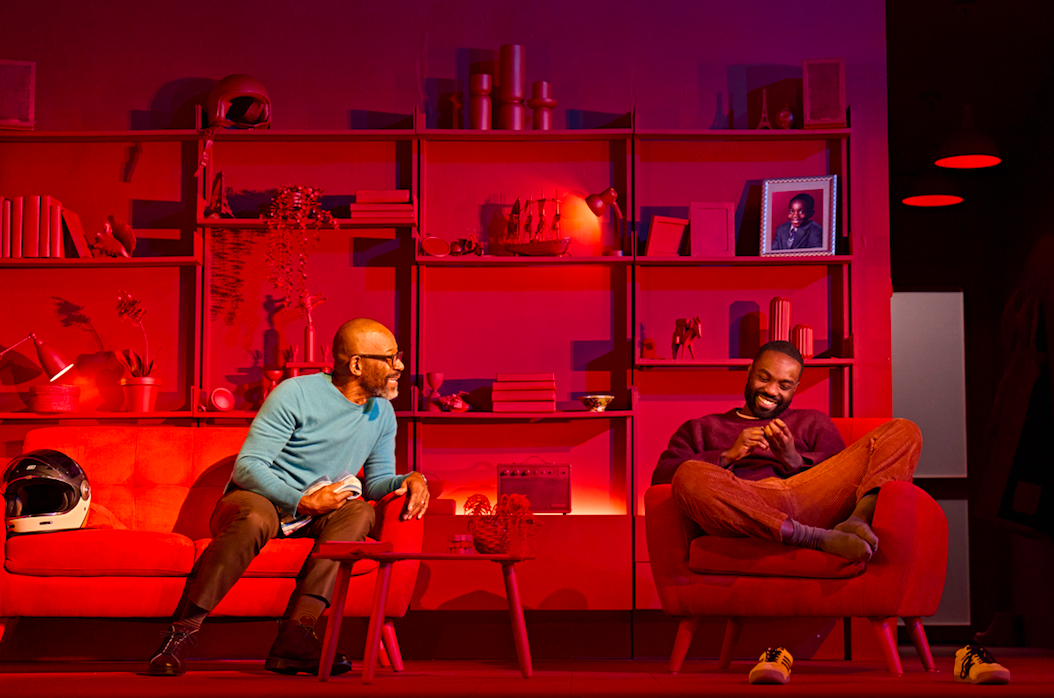
Lennie James and Paapa Essiedu on creating the play that gal-dem made happen
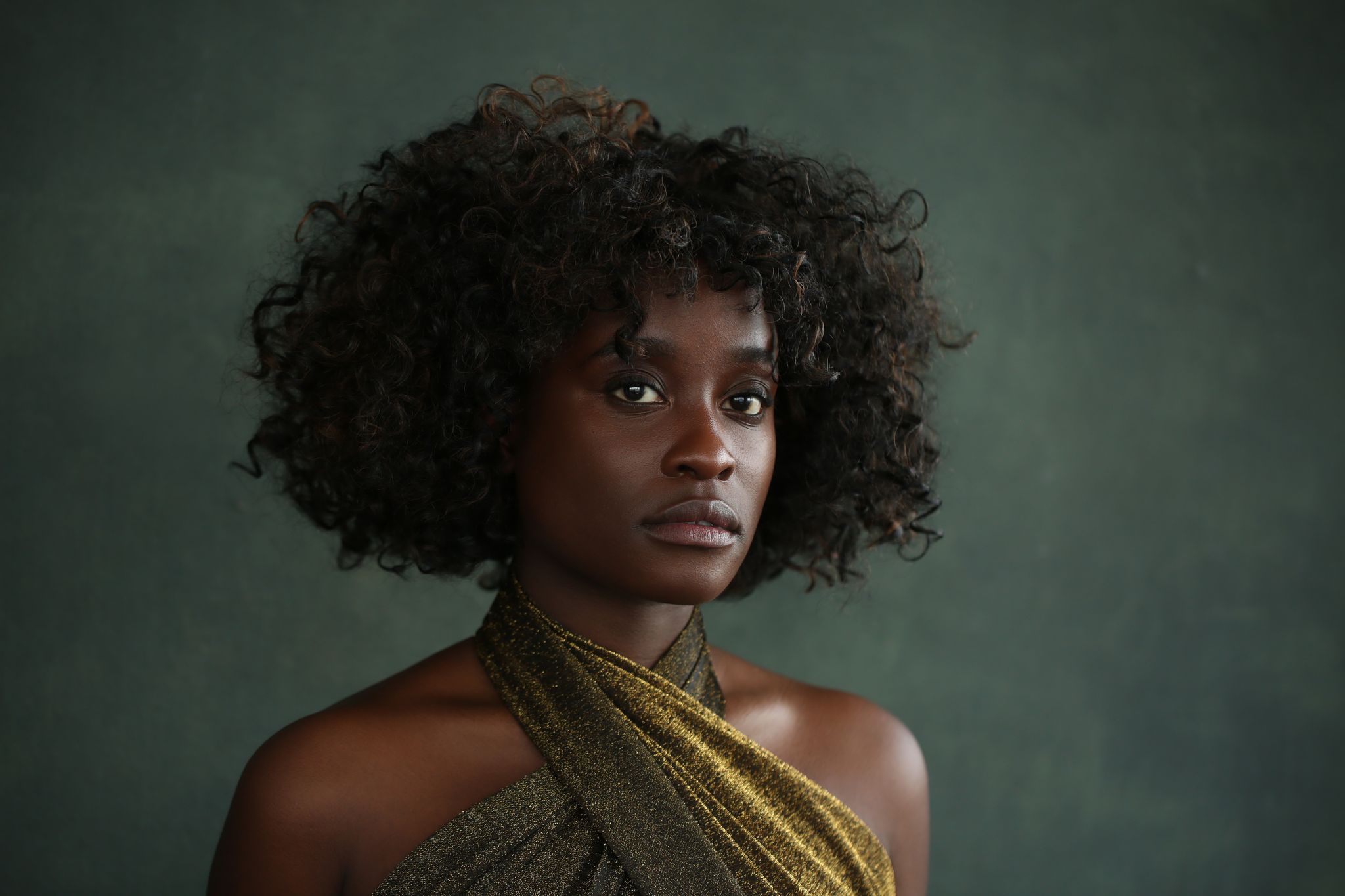
babirye bukilwa on their new play …cake and surviving the theatre world in the pandemic
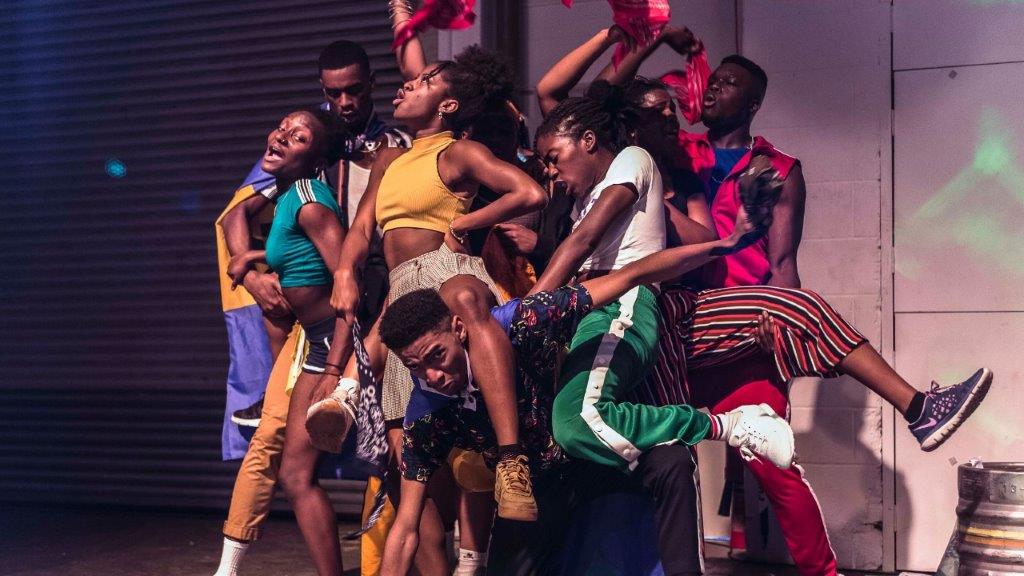
As theatres reopen, I’m worried smaller ones won’t survive
